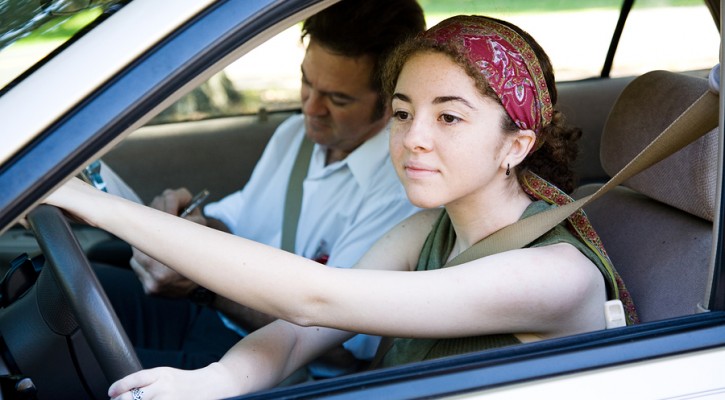Tag Archive: florida learners permit

The Two-Step Process of Getting a Driver’s License
July 12, 2011
Though the process of getting a driver’s license may be simplified to a few steps, it does not necessarily mean that it is an easy in-and-out operation. One has to prepare well enough to pass both processes. The process that most states have is the knowledge test and the road skills test.
The first step is the knowledge test – this is for getting a permit.
Knowing the proper rules of the road is important when getting a license, so the first test consists of a written road rules and road signs test. Once the new driver has proved they understand the rules of the road, they can receive their learner’s permit to allow them to actually learn the skills needed behind the wheel of a car. The learner’s permit is designed to give new drivers a period (six months to a year), in which they can learn to drive under the close supervision of an experienced licensed driver (21 years of age or older). Once the new driver has developed their driving skills and gained enough experience, they should be ready to pass their driving skills or road test.
The second step, of course, is the driving skills test.
The behind the wheel road test is designed to test the basic driving skills that everyone needs to safely handle a motor vehicle. The road test is really quite simple. Although the road test is quite simple, approximately twenty five percent of new drivers fail in their first try. The examiner will give the new driver instructions to perform simple driving tasks such as parking, making an emergency stop, and a three-point-turn. The test isn’t designed to try to trick the driver and the test examiner will not ask the new driver to do anything that is illegal. If a minor mistake is made, the examiner will note it on the test form. If enough minor mistakes are made, usually adding up to 30 points, the driver will not pass. However, most of the failures are due to simple but costly mistakes. Mistakes such as failing to stop completely at a stop sign or hitting the cones while trying to park are grounds for an automatic failure. New drivers should practice these maneuvers over and over until they are second nature before attempting to pass the road test.
If you hold a valid license from one state and are trying to get a license in a new state, most states will allow a transfer of licenses without any additional tests but some states may require that a driver take either the written road test or both the written test and the road exam. Check the your state’s DMV driving manual and be prepared.
The key to getting a driver’s license is: study well, practice well and be patient.

How to Get a Florida Learner’s Permit
December 5, 2008
So, you’re fifteen years old and ready to get your Florida Learner’s Permit. Congratulations! You are about to take the first step towards increased freedom and independence – but along with that comes increased responsibility. You’ll need to follow certain steps to get your learner’s permit. Here’s how to make the process as smooth as possible.
First, try to plan ahead. Many new drivers want to get their regular driver’s licenses as soon as they turn 16, but you need to have held a learner’s license for at least one year without any traffic convictions before you apply for your operator’s license.
When you go to the DMV, you’ll need appropriate identification. You’ll also need a certificate of completion for the Traffic Law and Substance Abuse Education course. Your parent or legal guardian will need to sign a consent form. Then you’ll be ready to take the written test!
The written test consists of 20 questions about road rules and 20 questions about road signs. You must answer 15 out of 20 questions correctly to pass each test. Then you’ll take a vision test and a hearing test right there at the DMV.
Once you earn your learner’s permit, you must comply with certain restrictions to keep it. You can never drive alone with a learner’s permit, no matter how old you are. You may only drive during daylight hours during the first three months and until 10 p.m. thereafter, always with a licensed driver who is at least 21 years old and occupies the front passenger seat.
You’ll need to follow all traffic laws carefully, both to develop safe driving habits and to avoid further restrictions. If you receive a moving traffic conviction while you have a learner’s license, the one-year period you are required to hold your learner’s license will be extended for one year from the date of the conviction or until you are 18 years old, whichever happens first.
If you receive six points on your driving record within a 12-month period, your driving privileges are automatically restricted to business purposes only for 12 months or until you are 18, whichever happens first. If you receive additional points during this restricted period, the restriction is extended 90 days for each additional point.
In addition, drivers under the age of 21 with a blood alcohol level of .02% or more will have their license immediately suspended for six months. This administrative action is for a first offense; a second offense will result in a one-year suspension. Refusal to submit to testing results in a suspension of twelve months for a first offense and eighteen months for a second offense.
If you are truant in your school attendance, your driving privilege will be suspended until you provide proof you have attended school for 30 consecutive days.
As you can see, once you get your learner’s permit, you’ll need to drive very safely to keep it and to earn your operator’s license. Taking this responsibility seriously will go a long way towards earning your place in society as a trustworthy adult.
